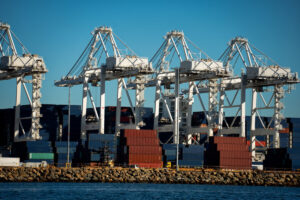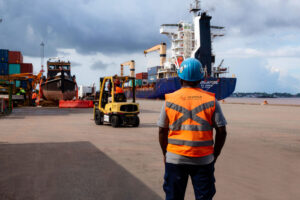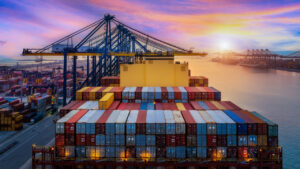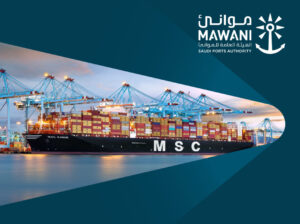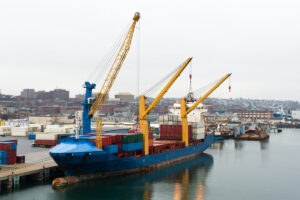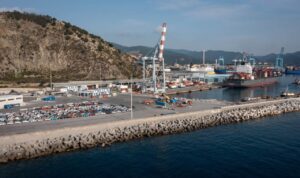The Port of Long Beach is forging ahead with its Supply Chain Information Highway to keep cargo flowing into the future.
Announced in December, the Supply Chain Information Highway has entered the demonstration phase. The Port is currently running simulations with participating terminal operators, ocean carriers, trucking companies, railroads and beneficial cargo owners.
“The pilot uses real data that supports day-to-day operations,” said Port of Long Beach Deputy Executive Director Dr. Noel Hacegaba. “Even in this testing phase, the initiative is already enhancing the planning process our partners use to track cargo and optimise their operations.”
The platform provides shippers and the supply chain with data that can be integrated into their own systems, enabling them to track cargo from origin to destination and make better operational decisions along the way.
The system also functions as a common corridor connecting other data-sharing platforms.
“The whole idea is to liberate data. Instead of requiring the supply chain to conform to a one-size-fits-all system, the Information Highway flips the equation by accommodating data delivery to meet each user’s unique needs” Hacegaba added.
The software was developed for the Port of Long Beach by St. Louis-based UNCOMN.
The larger initiative aligns with a digital platform Northwest Seaport Alliance is developing to give shippers, dispatchers and drivers greater visibility when making and managing trucking appointments.
The need for digital speed
As a result of the pandemic and the subsequent backlogs, the US public has learned the importance of supply chain and conditions on the ground have generated widespread support for digital solutions.
Measures aimed at strengthening the supply chain include the federal Infrastructure Investment and Jobs Act signed into law in November by President Biden. The $1.2 trillion package includes more than $5 billion for port projects and an additional $27 billion in grant opportunities for ports.
California Gov. Gavin Newsom has recommended $1.2 billion for port, freight and goods movement infrastructure and an additional $30 million for operational and process improvement port grants in his proposed 2022-23 budget.
The Port of Long Beach will pursue these resources, Hacegaba said.
Recent complementary initiatives have also emerged. These include a national project the White House announced in mid-March called the Freight Logistics Optimisation Works, or FLOW.
The project is led by the US Department of Transportation and aims to pilot an exchange of key freight information among members of the goods movement supply chain.
The Port of Long Beach is among the 18 participants tapped to collaborate on data-sharing to ease supply chain congestion, increase cargo velocity, and reduce the costs associated with goods movement ultimately borne by consumers.
Other government efforts include the Federal Maritime Commission’s Maritime Data Infrastructure initiative.
The project seeks to establish standards and best practices for data access and transmission. Additionally, the Supply Chain Optimisation and Resilience (SCORe) Coalition is focused on building consensus for international standards for a national freight data portal.
US West Coast ports joined forces to back digital Supply Chain Information Highway.


